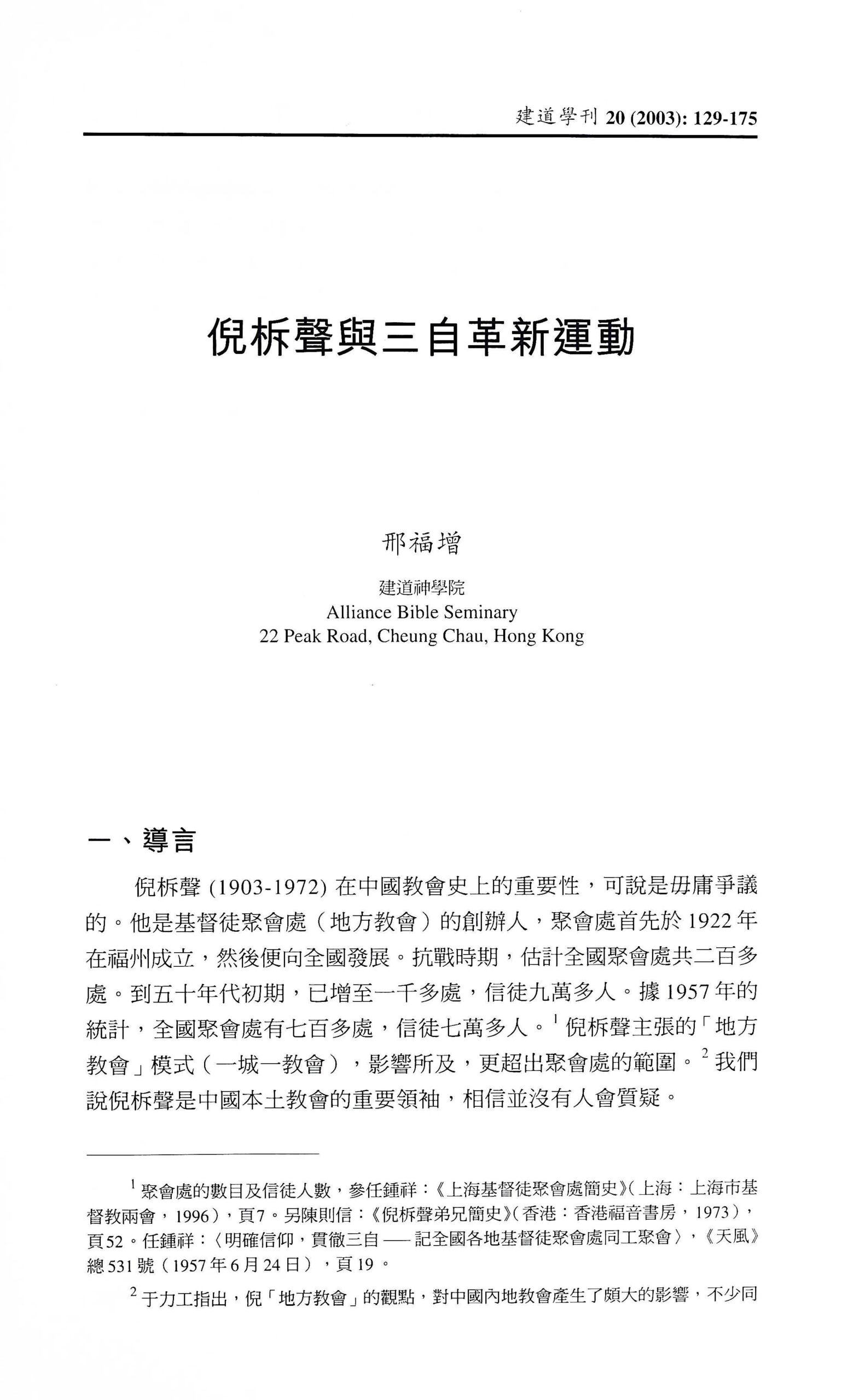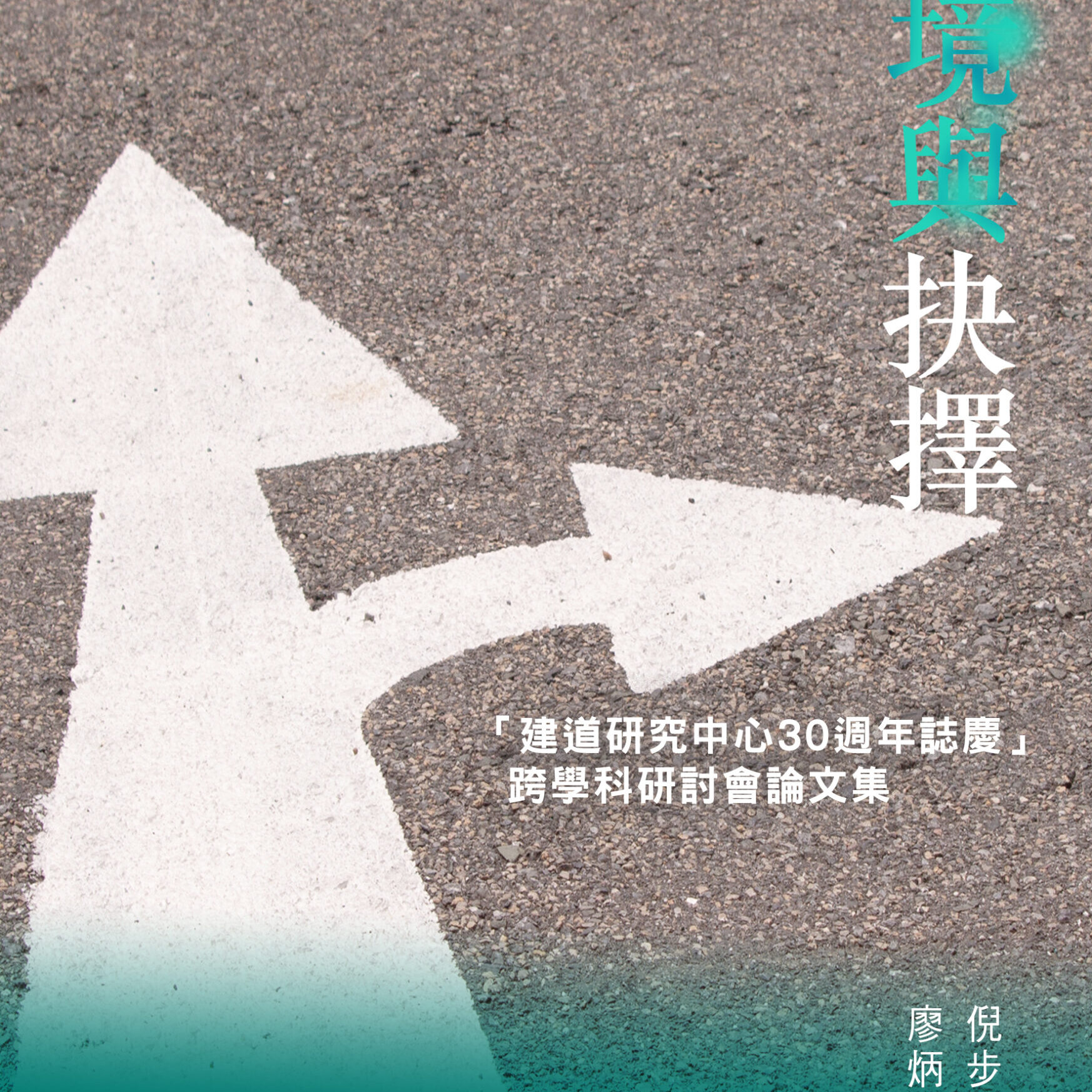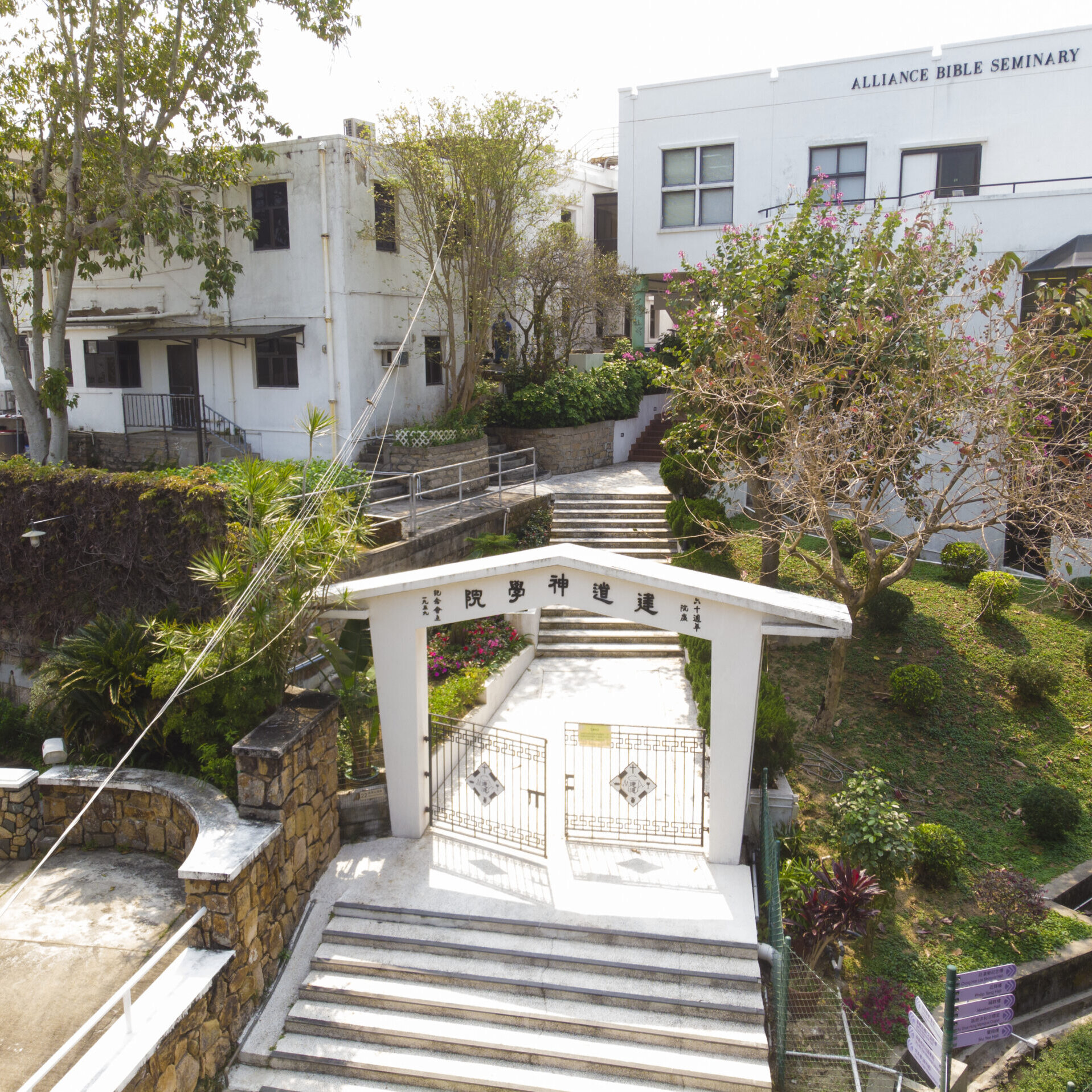倪柝聲與三自革新運動/邢福增
撮要
倪柝聲(1903-1972)在中國教會史上的重要性,可說是毋庸爭議的。但關於倪氏的生平,仍有許多極富爭議又具影響的空白帶,有待學者重建。筆者相信,重構倪氏生平的最大阻力,主要是信徒間普遍的「英雄崇拜」心態。英雄崇拜造就了殉道史觀,這從倪柝聲在中共建國後的遭遇一事,即充分反映出來。新中國成立前後,究竟倪柝聲對新政權及三自革新運動的態度為何?有人認為他打從起始便領導教會反對三自,但亦有人指其早已投向三自,孰是孰非仍有待研究。本文主要以倪柝聲及三自運動的互動關係為討論焦點,旨在探討倪氏在新中國成立後至1952年4月被捕前與黨國及三自革新運動的複雜關係,特別是他如何在反帝愛國與三自革新,作出政治立場與宗教立場的區別。
ABSTRACT
It is no doubt that Watchman Nee (1903-1972) had played an important role in the history of modern Chinese church. With regard to his life, there are still some critical moments that need historian’s construction, reconstruction, or even deconstruction. However, one of the major obstacles facing us when reconstructing the history of Nee is a sense of “hero-worship” among many Christians. Nee is regarded a hero or even a martyr, for he had made a stand against the atheist Communist government and the apostate Three-Self Movement. This paper tries to reassess Nee’s attitude toward the new regime and the Three-Self Movement from 1949 to 1952; especially stresses on Nee’s response to the drastic changes in political and religious situation of the period and the intricate relations between Nee and the Three-Self Movement.
原載於《建道學刊》20期(2003年7月),頁129-175。
最新文章
新手牧者研究計劃(三):新手牧者的身心靈狀態 / 盧慧儀
2025 年 11 月 19 日
【教牧退休】好好理財 退而不憂 / 林本利
2025 年 10 月 1 日
【教牧退休】生前身後的管理:平安三寶 / 陸文慧
2025 年 10 月 1 日
編輯精選
[電子書]困境與抉擇:「建道研究中心30週年誌慶」跨學科研討會論文集/廖炳堂、倪步曉主編
2025 年 1 月 2 日
從梧州到長洲:建道神學院125年的挑戰與恩典 / 陳智衡
2023 年 10 月 1 日
微小教會的見證/高銘謙
2023 年 6 月 1 日







